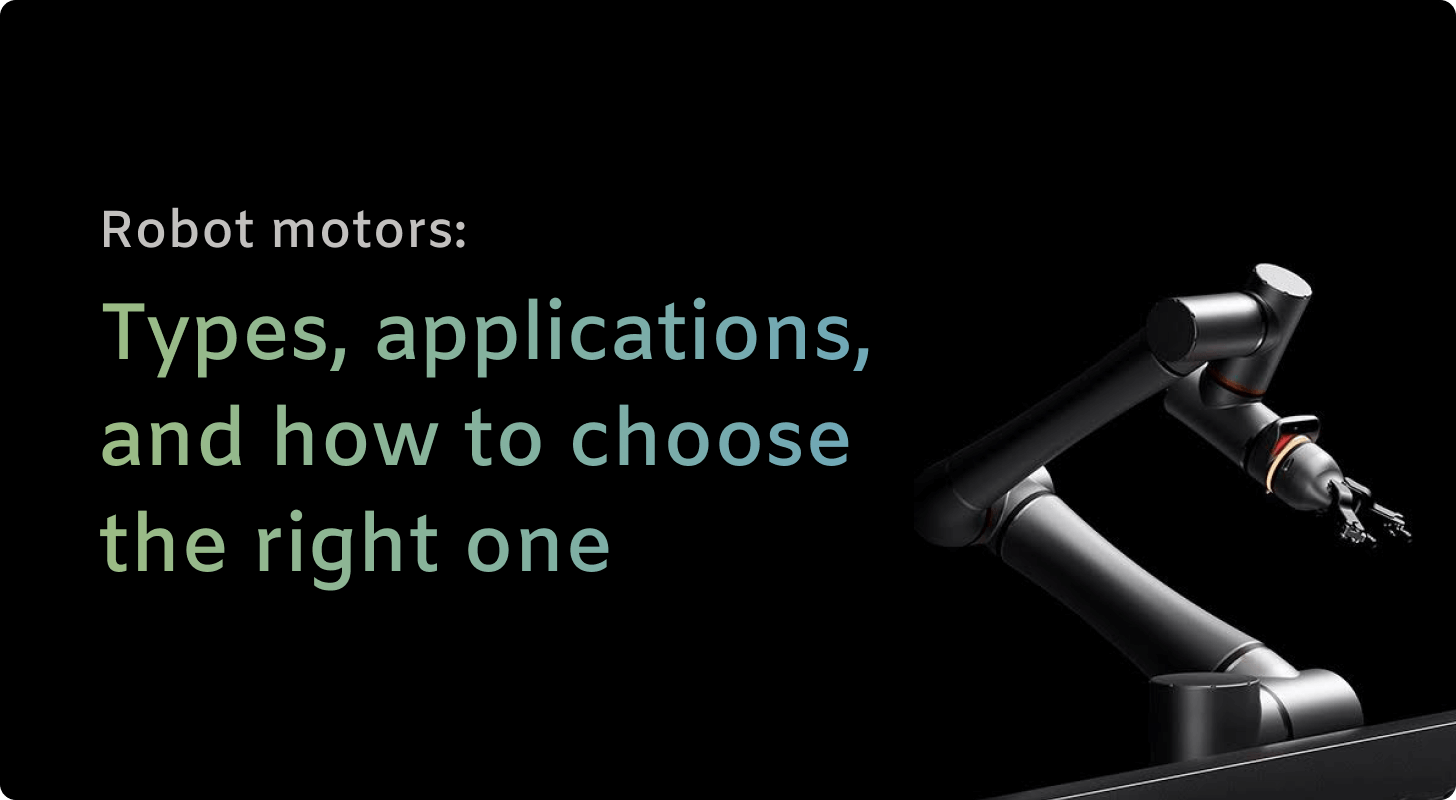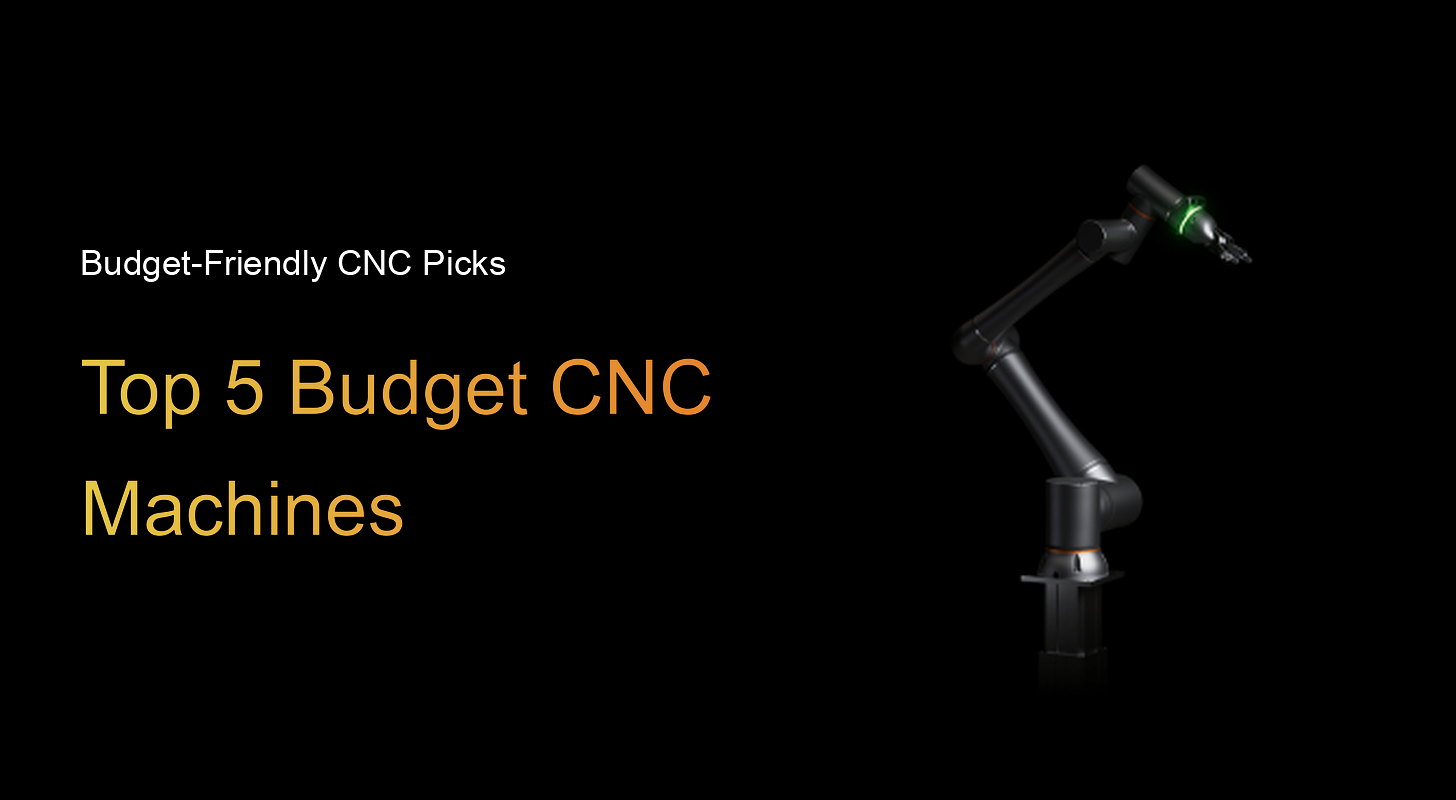Robot manufacturers have just entered their iPhone moment.
After decades of $100K+ price tags and programming nightmares, companies like Standard Bots are shipping plug-and-play cobots for $37K while Chinese manufacturers flood the market with alternatives that actually work.
According to ABI Research, the global robotics market is projected to expand to $111 billion by 2030, led by industrial robot companies like Standard Bots, FANUC, ABB, and KUKA. Whether you’re running a high-throughput automotive plant or a small fabrication shop, the right robot manufacturer determines how well your automation scales, integrates, and performs.
Best robot manufacturers in 2026: TL;DR
What is a robot manufacturer?
A robot manufacturer is a company that designs, develops, and produces robotic systems and their associated components, such as hardware, software, and end effectors (grippers).
Think of manufacturers as the builders at the foundation of robotics. Integrators might tailor robots for a specific shop floor, but manufacturers are the ones creating the machines themselves, the frames, servos, motion control, and embedded systems that make automation possible.
Many also bundle in integration tools so you can snap on vision cameras, grippers, or safety gear without hiring a coder.
Standard Bots, FANUC, ABB, and Yaskawa have become trusted partners for industries that demand speed and precision, from welding cars to assembling microchips. Universal Robots took a different path, showing that even small teams could bring robotics in-house with cobots that anyone on the floor could program.
Who are the global leaders in industrial robotics?
Standard Bots, FANUC, ABB, KUKA, Yaskawa, and Universal Robots lead industrial robotics in 2026. They power automation worldwide with reliable hardware, advanced software, and strong industry support.
Standard Bots
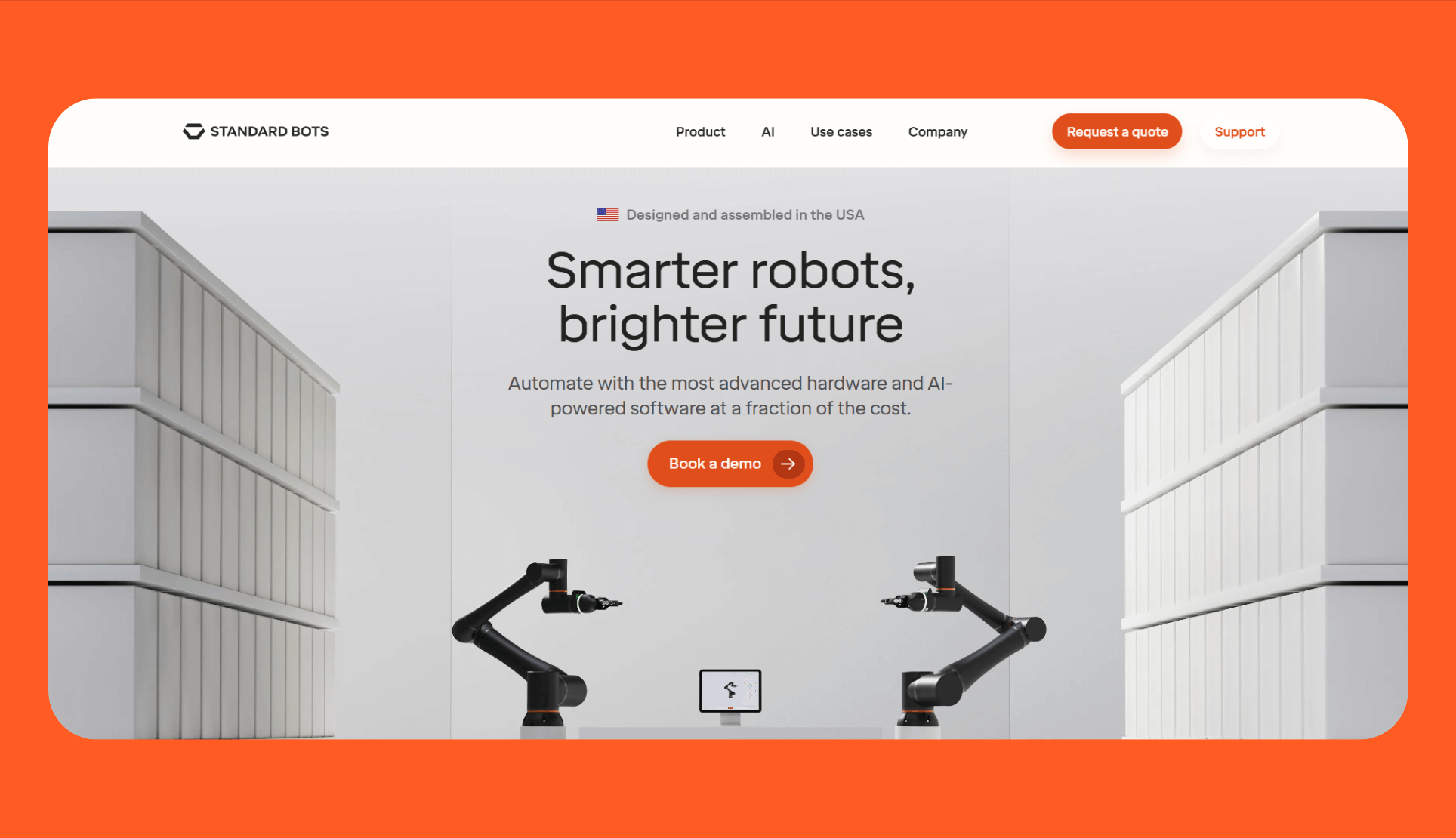
Standard Bots builds one robot that excels at one thing: automating manufacturing tasks for under $40,000. Standard Bots Core is a 6-axis arm with 18 kg payload, 1300 mm reach, built-in 3D vision, and AI tech. Assembled in New York, ships in 4 weeks, with a list price of $37K, which is half what Universal Robots charges for less capability.
Where Standard Bots wins: Machine shops that need automation yesterday, not next quarter. Core handles CNC tending, palletizing, pick and place, welding, basically 80% of manufacturing tasks. The no-code interface means your operators can program it without calling in specialists.
For ultra-light precision work under 3 kg or heavy automotive tasks over 100 kg, you'll want to look at their roadmap or consider other options. But for the vast majority of manufacturers looking to automate common tasks without breaking the budget, Core delivers exactly what's needed.
ABB
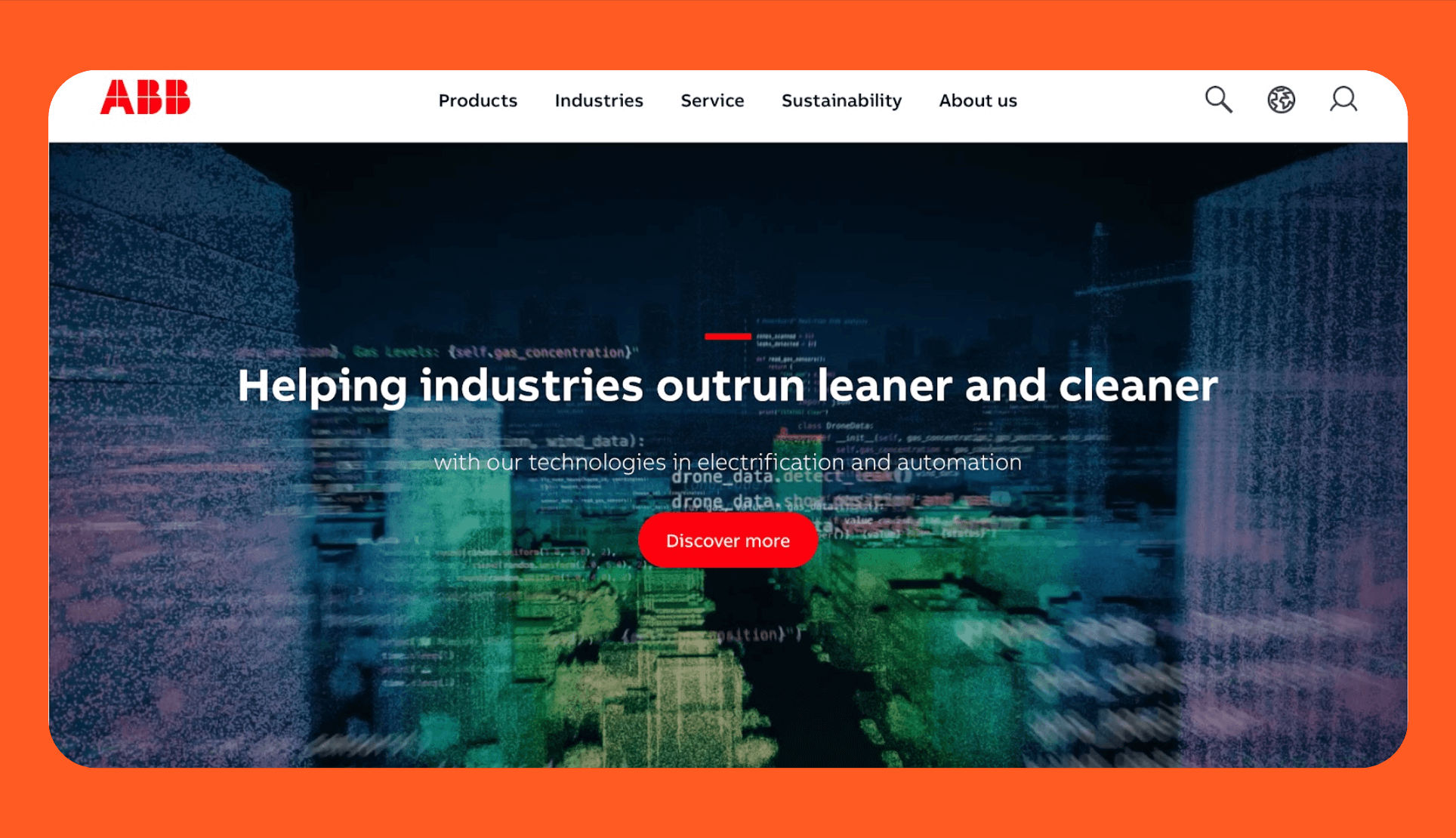
ABB is a global leader in industrial robotics, with more than 400,000 robots installed worldwide. Headquartered in Switzerland, ABB builds 6-axis arms, delta robots, SCARAs, and collaborative systems for use in automotive, logistics, and electronics.
Its IRB series covers everything from compact high-speed units to large payload arms. ABB’s edge is RobotStudio and a unified automation stack that includes drives, PLCs, and controllers. You simulate offline, deploy faster, and keep motion, safety, and I/O under one roof.
ABB can serve both high-volume production lines and flexible, high-mix workflows. With manufacturing and R&D centers across Europe, Asia, and the U.S., ABB supports global deployment and maintenance at scale. It’s especially strong in applications like welding, machine tending, palletizing, and picking.
FANUC
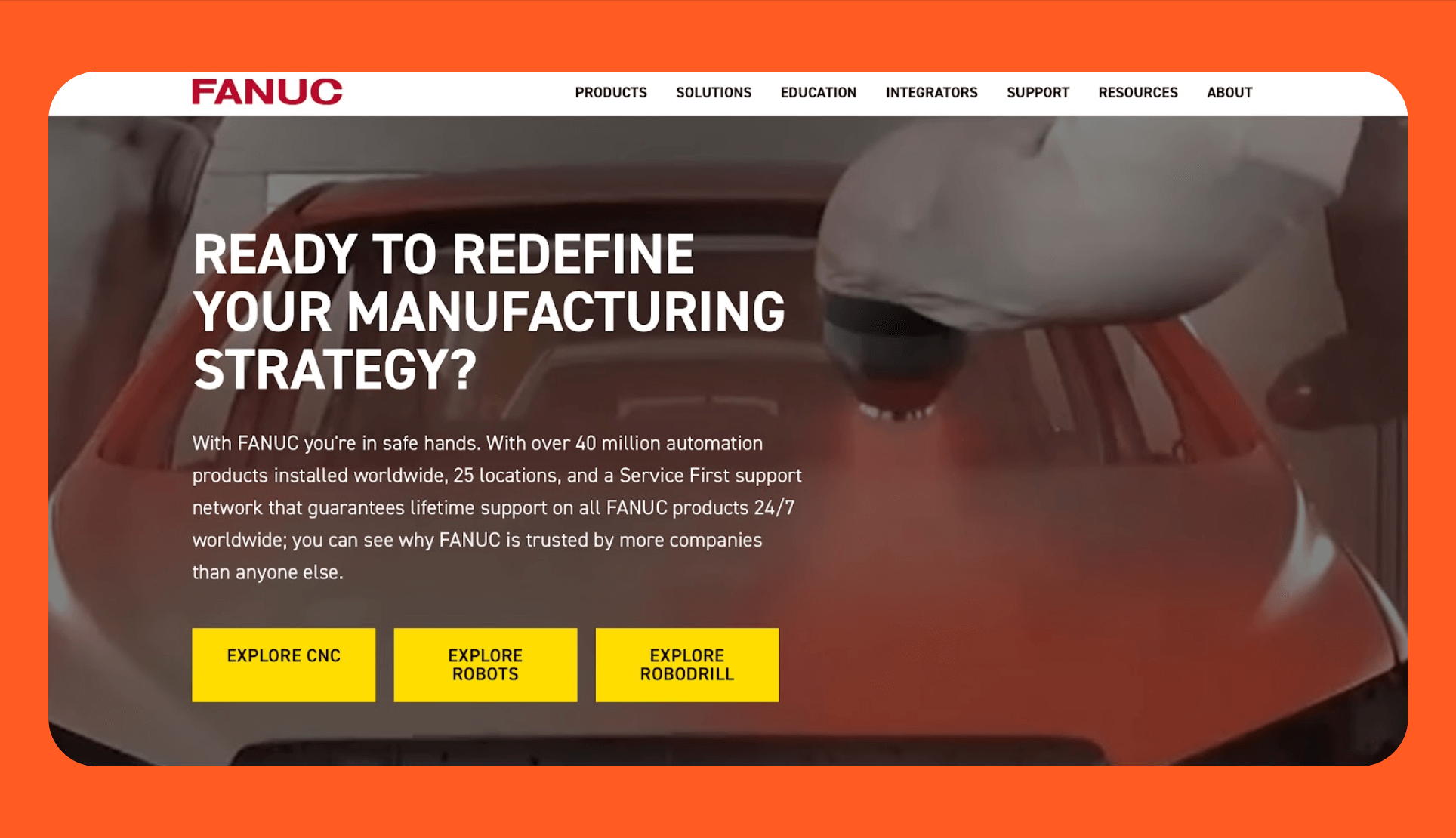
FANUC is the world’s largest robot maker by volume, with over 1 million robots installed. Based in Japan, FANUC is known for building reliable, durable robots with long service lives and minimal maintenance requirements.
Its industrial robots include the LR Mate (compact), M-20 (general purpose), and R-2000 (heavy payload), along with collaborative CRX and CR series arms. FANUC controls its entire manufacturing stack, from servos and drives to controllers and encoders. This ensures long-term software support and hardware compatibility across generations.
FANUC is especially trusted in automotive, CNC integration, and general manufacturing environments that require high uptime. FANUC robots also support advanced motion control, vision integration, and force sensing, making them adaptable without sacrificing precision.
KUKA
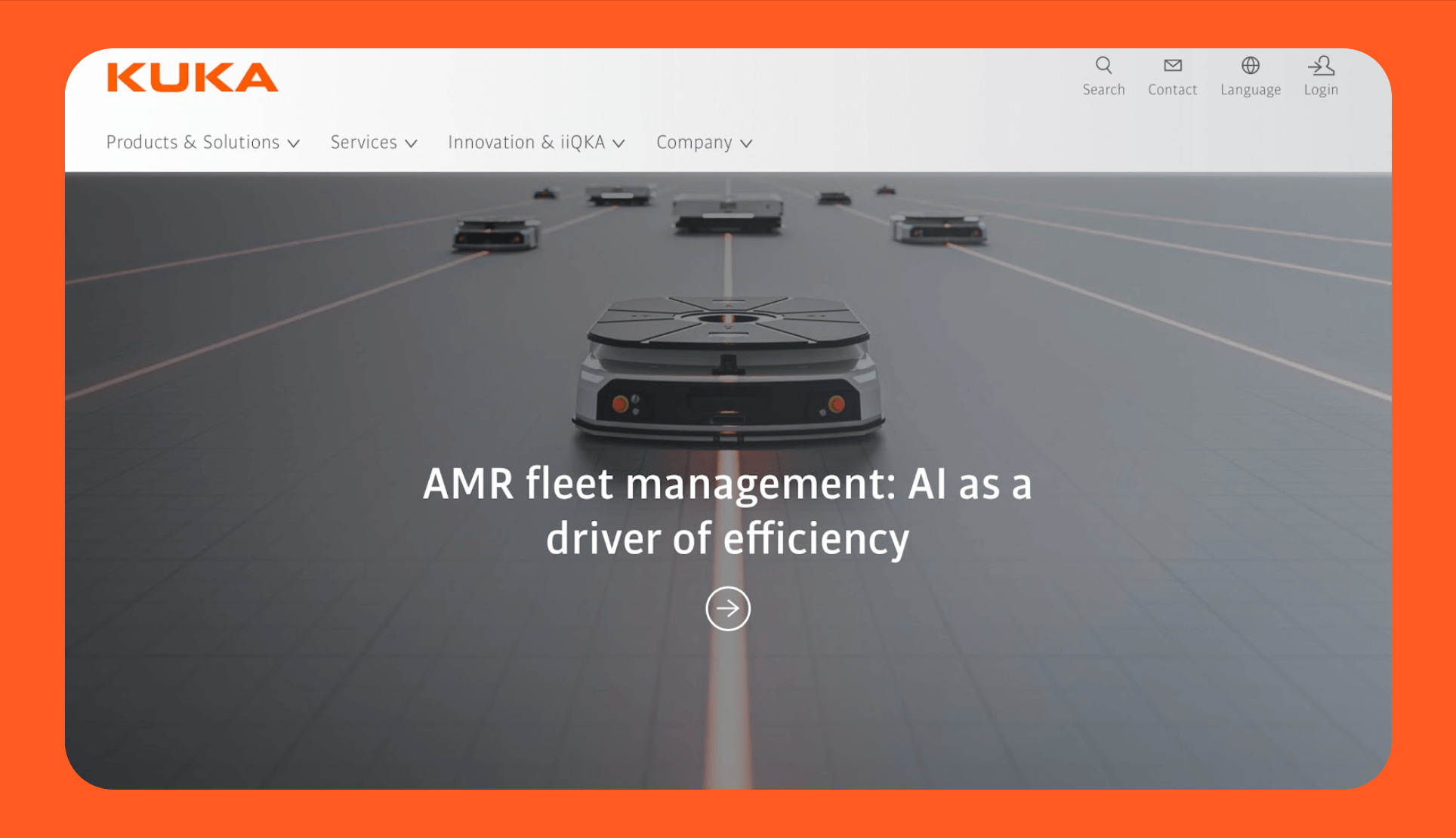
KUKA is a German robot manufacturer best known for automotive automation, but it also serves aerospace, logistics, and medical sectors. KUKA focuses on high-throughput production. QUANTEC and FORTEC handle heavy welding and palletizing; AGILUS and LBR iisy cover compact cells and light assembly.
KUKA robots feature strong repeatability, flexible mounting options, and compatibility with powerful software like KUKA.WorkVisual and KUKA.Sim. The company also offers mobile platforms like OmniMove for autonomous material handling.
After being acquired by China’s Midea Group in 2016, KUKA has expanded its presence in Asia while maintaining its German engineering quality. It’s often favored for high-performance applications that require complex motion, integrated safety, or precise synchronization with external machinery.
Yaskawa (Motoman)
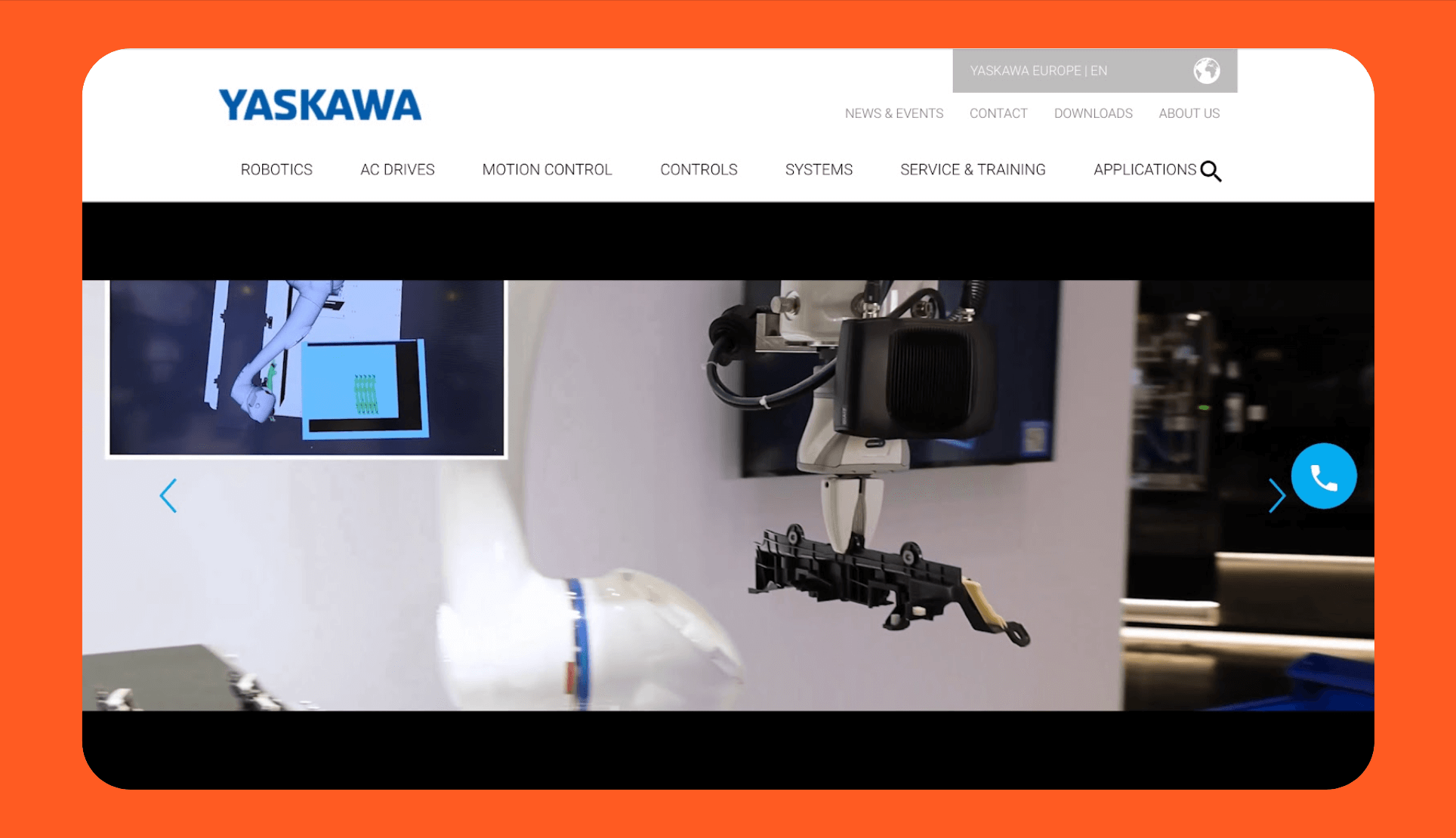
Yaskawa, the creator of Motoman robots, is a top industrial robot manufacturer focused on welding, assembly, and machine tending. Its headquarters are in Japan, but it operates worldwide. Yaskawa’s compact, fast arms suit arc welding, machine tending, and pick-and-place. Standardized controllers simplify mixed-cell deployments.
It also produces the HC line of cobots, including the HC20XP, one of the few collaborative robots with IP67 protection.
Yaskawa’s simulation tools, like MotoSim, make it easy to plan and optimize robot setups in advance. Known for durability and low failure rates, Yaskawa robots are widely used by automotive OEMs, fabricators, and electronics manufacturers looking for compact, high-throughput systems.
Universal Robots
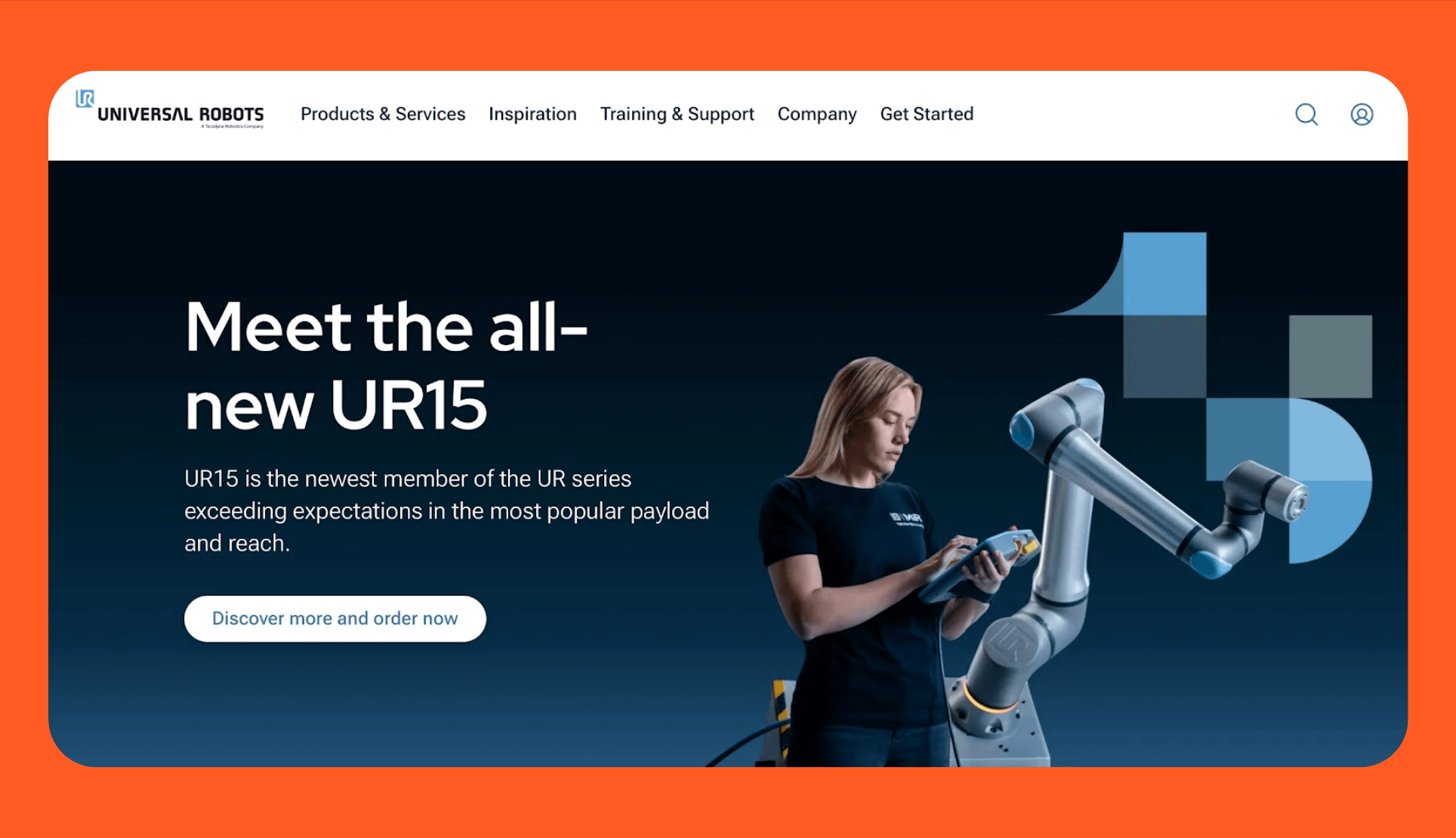
Universal Robots (UR) leads the global collaborative robot market, with over 75,000 cobots deployed in more than 50 countries. Founded in Denmark, UR introduced the first commercially successful cobot and continues to define the segment.
Its arms, like the UR3e, UR5e, UR10e, and UR20, offer payloads from 3 to 20 kg with reach options up to 1750 mm. UR’s key differentiator is its plug-and-play ecosystem. You can pair the robot with certified grippers, vision systems, and accessories from the UR+ marketplace.
The teach pendant interface makes it easy for operators to set up tasks without coding, and URScript allows for extensive customization. UR cobots are widely used in packaging, assembly, testing, and lab automation, especially by small and midsize manufacturers. They offer a low-cost, low-risk entry point into robotics without sacrificing reliability or support.
Key differentiators between robot manufacturers
Key differentiators between robot manufacturers include their target applications, system complexity, and ease of deployment. Some focus on heavy-duty factory robot arms, while others build cobots, mobile robots, or software-first platforms for fast automation.
Regional developments and emerging players
Regional trends and rising players are shifting the global balance of robot machine manufacturing in 2026. Although legacy brands still lead, government-backed growth in China and agile innovation in Europe and the U.S. are redefining the field.
China is moving fast with support from its national robotics strategy. Companies like Siasun, Estun, and EFORT are expanding into high-payload arms and collaborative systems. Unitree Robotics, originally known for four-legged robots, now offers lightweight industrial arms and mobile platforms aimed at small factories and research centers.
In Europe, companies like Neura Robotics and Franka Emika are developing low-cost cobots with advanced control systems and safety features. These arms are often cloud-connected and AI-enabled, offering smart automation at a fraction of traditional prices.
In the United States, players like Rapid Robotics and Miso Robotics are building turnkey automation for food service and light manufacturing, often with pay-as-you-go models.
Applications across industries
Applications across industries include heavy payload assembly, collaborative robotics, autonomous logistics, and precision manufacturing. Robot manufacturers build systems that are tailored to each task, from large, rigid arms for welding to flexible cobots and mobile platforms.
- Heavy payload assembly: Manufacturers like FANUC, KUKA, and ABB produce high-capacity robots that automate welding, material removal, CNC loading, and palletizing. These arms support payloads of 100 kg and above, making them essential for automotive, aerospace, and metal fabrication plants running around the clock.
- Collaborative robotics: Universal Robots, Yaskawa, and Neura Robotics specialize in cobots that safely operate alongside humans without fencing. These systems handle small part assembly, packing, inspection, and lab workflows. Their ease of use makes them ideal for small teams and high-mix production.
- Autonomous logistics: Companies like KUKA (OmniMove), Omron, and Mobile Industrial Robots (MiR) provide AMRs that move parts, tools, and bins between stations. These robots use SLAM and LiDAR to navigate dynamic environments like warehouses, hospitals, or cleanrooms with minimal supervision.
- Electronics and precision industries: Epson, Denso, and Stäubli lead in high-speed robots for electronics, semiconductors, and medical tools. With repeatability under ±0.01 mm, their SCARA and mini 6-axis arms are widely used for PCB assembly, soldering, testing, and cleanroom handling where accuracy matters most.
Challenges and the future
Challenges and the future of robot manufacturers revolve around cost barriers, global competition, and smarter automation. While robotics adoption is rising, manufacturers still face hurdles in price, complexity, and integration.
- High initial costs remain a barrier: Despite falling prices, many industrial robots still cost $35,000 to $120,000 per unit. It does not include programming, end effectors, or setup costs. For small and midsize manufacturers, the upfront investment can delay automation. Collaborative robots are helping lower this barrier, but price sensitivity remains a major concern outside large enterprises.
- Competition is intensifying globally: Chinese robot manufacturers like Siasun, Estun, and EFORT are scaling aggressively and expanding into foreign markets. These companies offer low-cost alternatives to Japanese and European brands, prompting legacy makers to improve pricing, support, and flexibility to maintain market share.
- Future robotics will focus on adaptability, AI, and affordability: Next-gen robots are becoming easier to set up and smarter to operate. Expect more built-in vision systems, no-code interfaces, and AI-powered motion control. Manufacturers are moving toward modular designs and plug-and-play software that shortens deployment time and widens accessibility.
Summing up
Robot manufacturers are reshaping how industries operate, from global brands building high-payload arms for factories to startups delivering fast, flexible cobots for labs and small shops. Whether you’re automating welding, packaging, or cleanroom assembly, the right manufacturer makes all the difference in cost, speed, and scalability.
As more businesses move toward smarter, modular automation, the line between traditional robots and AI-driven machines is quickly disappearing. Going forward, the most successful robot makers will be those who combine precision engineering with plug-and-play simplicity.
Next steps with Standard Bots’ robotic solutions
Looking to partner with the best in robot manufacturing? Standard Bots Core is the perfect six-axis cobot addition to any automation setup, delivering unbeatable precision and flexibility.
- Affordable and adaptable: Core costs $37K. Get high-precision automation at half the cost of traditional robots.
- Precision and power: With a repeatability of ±0.025 mm and an 18 kg payload, Core handles even the most demanding manufacturing tasks.
- AI-driven simplicity: Equipped with AI capabilities on par with GPT-4, Core integrates smoothly with your systems for advanced automation.
- Safety-first design: Machine vision and collision detection mean Core works safely alongside human operators.
Schedule your on-site demo with our engineers today and see how Standard Bots Core can bring AI-powered greatness to your production line.
FAQs
1. Who are the top robot manufacturers in the world?
The top robot manufacturers in the world in 2026 are Standard Bots, FANUC, ABB, KUKA, Yaskawa, and Universal Robots. FANUC leads in installations, ABB serves multiple industries, KUKA dominates automotive, Yaskawa specializes in welding and assembly, and Universal Robots leads the cobot market.
2. Which companies make industrial robotic arms?
The companies that make industrial robotic arms include Standard Bots, ABB, FANUC, KUKA, Yaskawa, Denso, and Epson. ABB and FANUC provide integrated solutions, while Denso and Epson specialize in compact arms. KUKA and Comau focus on automotive, and Stäubli is widely used in cleanrooms.
3. What is the difference between cobot makers and industrial robot manufacturers?
The difference between cobot makers and industrial robot manufacturers is in how the robots operate. Cobot makers like Universal Robots, Standard Bots, Techman, and Franka Emika design lightweight arms with built-in safety for human collaboration, while industrial makers like FANUC and KUKA build high-speed, high-payload arms for heavy-duty automation.
4. What industries do robot manufacturers focus on?
The industries robot manufacturers focus on include automotive, electronics, pharmaceuticals, logistics, metal fabrication, and food and beverage. In automotive plants, robots handle welding, painting, and part transfer; in electronics, they manage micro-assembly and soldering.
5. Who builds robots outside of Japan and Europe?
The companies that build robots outside of Japan and Europe include Siasun, Estun, and EFORT in China, and Rapid Robotics and Miso Robotics in the United States. Chinese brands expand with government support, while U.S. startups target small-scale manufacturing and food service.
brighter future
Join thousands of creators
receiving our weekly articles.






